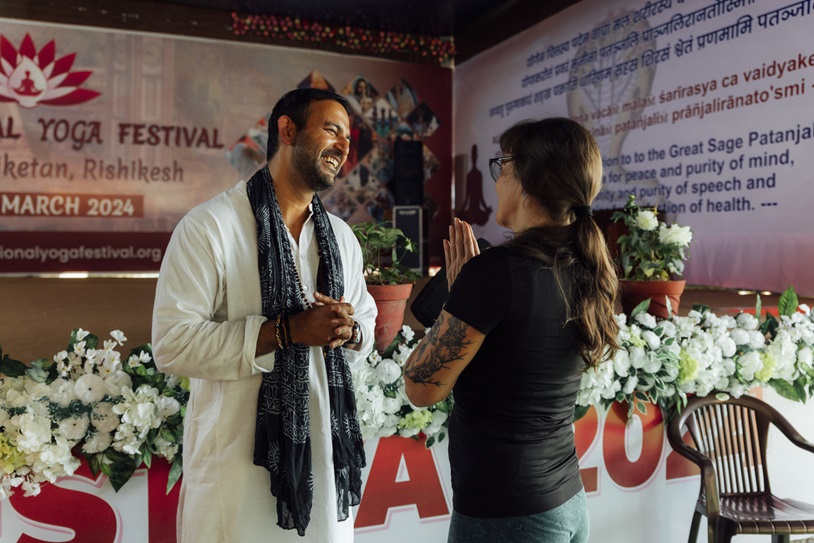Exploring Emotional Dimension of Health

Table of content
In our quest for holistic well-being, understanding the emotional dimension of health is pivotal. Emotions like anger, anxiety, happiness, depression, and sorrow shape our experiences and influence our overall emotional health profoundly. Instead of trying to manage or suppress these emotions, it is essential to create a space for them through regular practices that cultivate inner silence and awareness. This approach allows us to experience and understand our emotions more clearly, transforming how we interact with them and ultimately improving our physical and emotional health.
In exploring the emotional dimension of health, we will delve into the insights of spiritual Master Anand Mehrotra. He highlights the significance of incorporating practices like meditation and silence into our daily routines to improve your emotional Health. By embracing these practices, we can create a space to understand and manage our emotions more effectively. This approach not only aligns with traditional foundational wisdom but also offers a transformative path to achieving emotional balance. As we learn from these methods, we will discover how developing self-awareness and regular meditative practice can profoundly impact our overall well-being and emotional health.
The Role of Emotions in Health
Emotions are more than just fleeting feelings; they play a crucial role in our physical and mental health. Hence it is important to understand the emotional dimension of health. Each emotion impacts our body's stress levels, immune response, and overall well-being. For example:
1. Anger and Stress
Chronic anger can lead to increased stress levels, which in turn can result in high blood pressure, heart disease, and other stress-related conditions. Anger triggers the body's fight-or-flight response, causing physical changes that, if sustained, can be detrimental to emotional health.
2. Anxiety and Immune Function
Persistent anxiety can weaken the immune system, making individuals more susceptible to infections and illnesses. Anxiety can also lead to gastrointestinal issues and disrupt sleep patterns, further impacting emotional health.
3. Happiness and Well-Being
On the positive side, happiness and contentment have been shown to enhance immune function, lower stress levels, and promote a general sense of well-being. Positive emotions contribute to a healthier heart and improved resilience against illnesses.
4. Depression and Physical Health
Depression can manifest in physical symptoms such as fatigue, changes in appetite, and chronic pain. It can also exacerbate existing health conditions and hinder one's ability to engage in healthy behaviours.
Recognizing and addressing these emotional influences allows us to manage their impact on our physical and emotional health more effectively.

Creating Space for Emotions
Rather than trying to control or eliminate emotions, creating space for them can be a more effective approach. This emotional dimension of health involves developing practices that foster inner silence and self-awareness. Key strategies include:
1. Meditation
Meditation is a powerful tool for creating emotional space. Regular meditation helps us observe our emotions without becoming overwhelmed by them. It encourages a state of mindfulness where we can acknowledge our feelings without judgment. By practicing meditation, we cultivate a sense of calm and clarity, which allows us to process emotions more effectively.
2. Mindfulness
Mindfulness involves being present in the moment and observing our thoughts and emotions as they arise. This practice helps us detach from immediate emotional reactions and gain perspective on our feelings. Mindfulness techniques, such as mindful breathing or body scans, can be integrated into daily life to maintain balance in emotional dimension of health.
3. Reflective Practices
Engaging in reflective practices, such as journaling or deep contemplation, allows us to explore our emotional experiences in a structured way. Reflective practices help us identify patterns in our emotions and understand their root causes, leading to greater self-awareness and emotional resilience.

Insights from Anand Mehrotra
Anand Mehrotra, a prominent figure in holistic wellness, offers valuable insights into managing emotions through his teachings. According to Anand Ji, incorporating practices such as meditation and silence into our daily routines is essential for achieving emotional balance. His approach emphasizes the importance of connecting with our inner selves and understanding our emotions more deeply.
1. Meditative Practices
Anand Ji advocates for a consistent practice of meditation as a means of emotional health and regulation. He suggests dedicating time each day to meditation, with a focus on creating inner silence and self-awareness. This practice helps us develop a clearer understanding of our emotions and their underlying causes.
2. Silence and Self-Awareness
In addition to meditation, Anand i emphasizes the role of silence in fostering emotional well-being. Regular periods of silence—such as 30 minutes in the morning and 15 to 20 minutes in the evening—provide an opportunity to observe and process emotions without external distractions. This practice helps us connect with our inner selves and gain insights into our emotional dimension of health.

The Practice of Silence
Silence is a foundational practice in Mehrotra’s approach to emotional health. Regular periods of silence offer a space to reflect on our emotions and cultivate a deeper connection with ourselves. During these moments, we can observe our emotional states without interference from external stimuli. This practice encourages a state of inner peace and clarity, allowing us to manage our emotions more effectively.
Morning and Evening Routines
Incorporating silence into our daily routines can significantly impact our emotional health. Starting the day with a period of silence helps set a positive tone and fosters a sense of calm. Ending the day with reflective silence allows us to process our experiences and prepare for restful sleep. Consistent practice of these routines can enhance our ability to handle challenges and maintain balance in emotional dimension of health.
The Transformative Power of Self-Awareness
By embracing Anand Mehrotra’s teachings and integrating regular practices of silence and meditation, we begin to see significant changes in how we relate to our emotions. This approach fosters a deeper connection with our true selves and enhances our ability to navigate challenges in emotional dimension of health. The transformative process of self-awareness allows us to address the root causes of our emotions and develop healthier responses.
Cultivating Emotional Balance
As we cultivate greater self-awareness, we can address the underlying beliefs and patterns that contribute to our emotional experiences. This process involves identifying and challenging limiting beliefs, developing healthier coping strategies, and embracing a more balanced perspective on life. Through this transformative journey, we achieve a greater sense of emotional stability and well-being.
Conclusion
Exploring the emotional dimension of health reveals the profound impact that our emotional states have on our overall well-being. By adopting practices that create space for our emotions and learning from experts like Anand Mehrotra, we can gain a deeper understanding of our emotional experiences. Through regular meditation and self-awareness, we cultivate a balanced emotional state that supports both mental and physical health. This holistic approach to emotional well-being leads to a more harmonious and fulfilling life, allowing us to navigate our emotions with greater ease and resilience.
About Anand Mehrotra
Anand Mehrotra is an deeply connected to the Himalayan yogic lineage. Originating from Rishikesh, the heart of yoga, Anand ji has devoted his life to sharing the pure essence of this ancient tradition. His approach uniquely merges the wisdom of the Himalayan yogis with Vedic insights and Tantric roots, forging a yogic path known as Sattva Yoga.
Beginning his spiritual journey at a young age, Anand was nurtured under the guidance of his guru amidst the rugged beauty of the high Himalayas. He traversed this sacred terrain, engaging with sages and immersing himself in the profound practices of yogic living. Through his innate thirst for wisdom and natural aptitude, Anand evolved into a revered Rishi and Master Teacher, serving as a custodian of timeless knowledge for a global audience.
Anand's presence exudes a sense of bliss and boundless potential, offering seekers a life-altering experience. Delve into his teachings, courses, and profound insights at Sattva Connect and Sattva Yoga Academy to uncover the depths of your truest self.